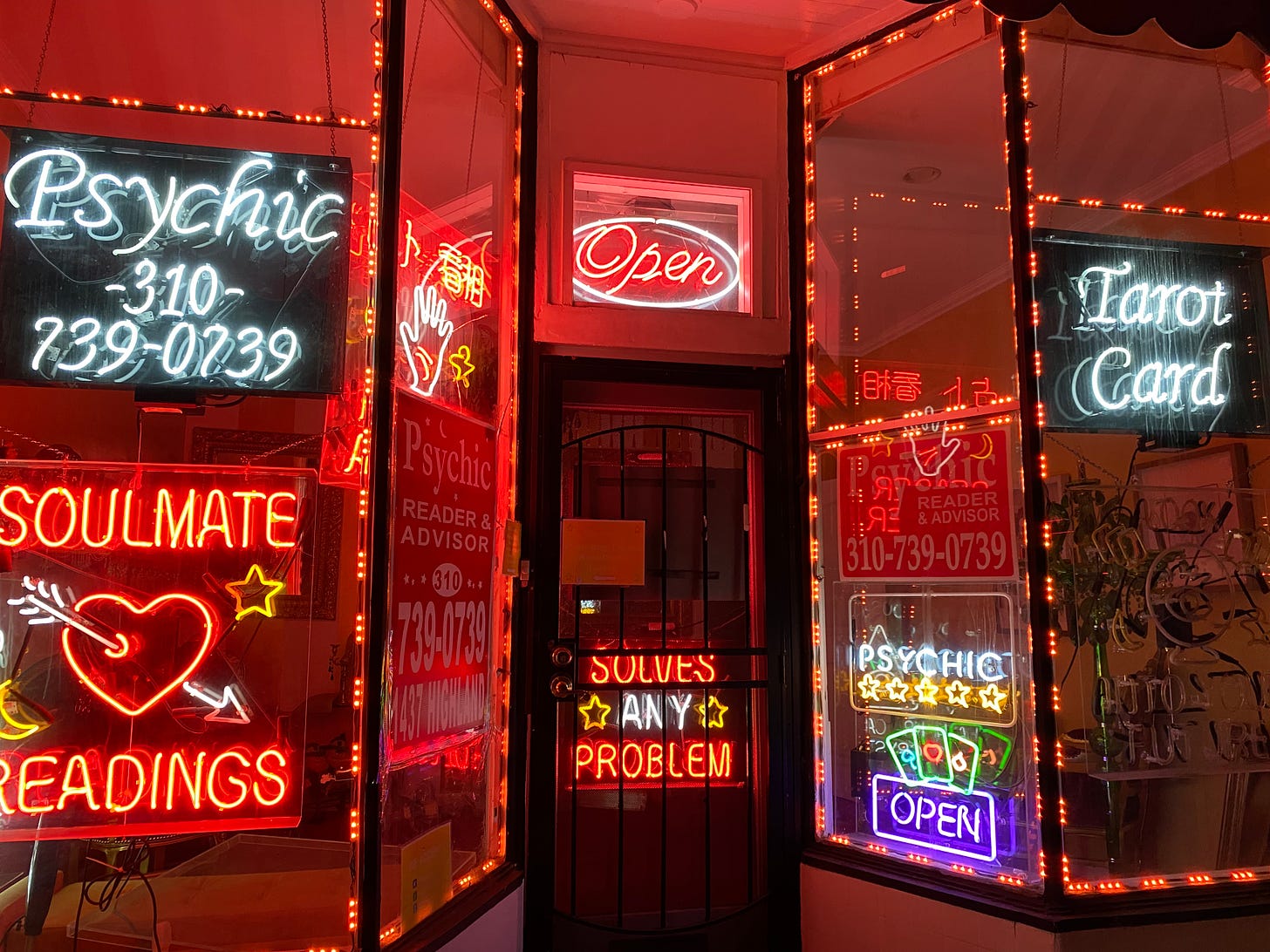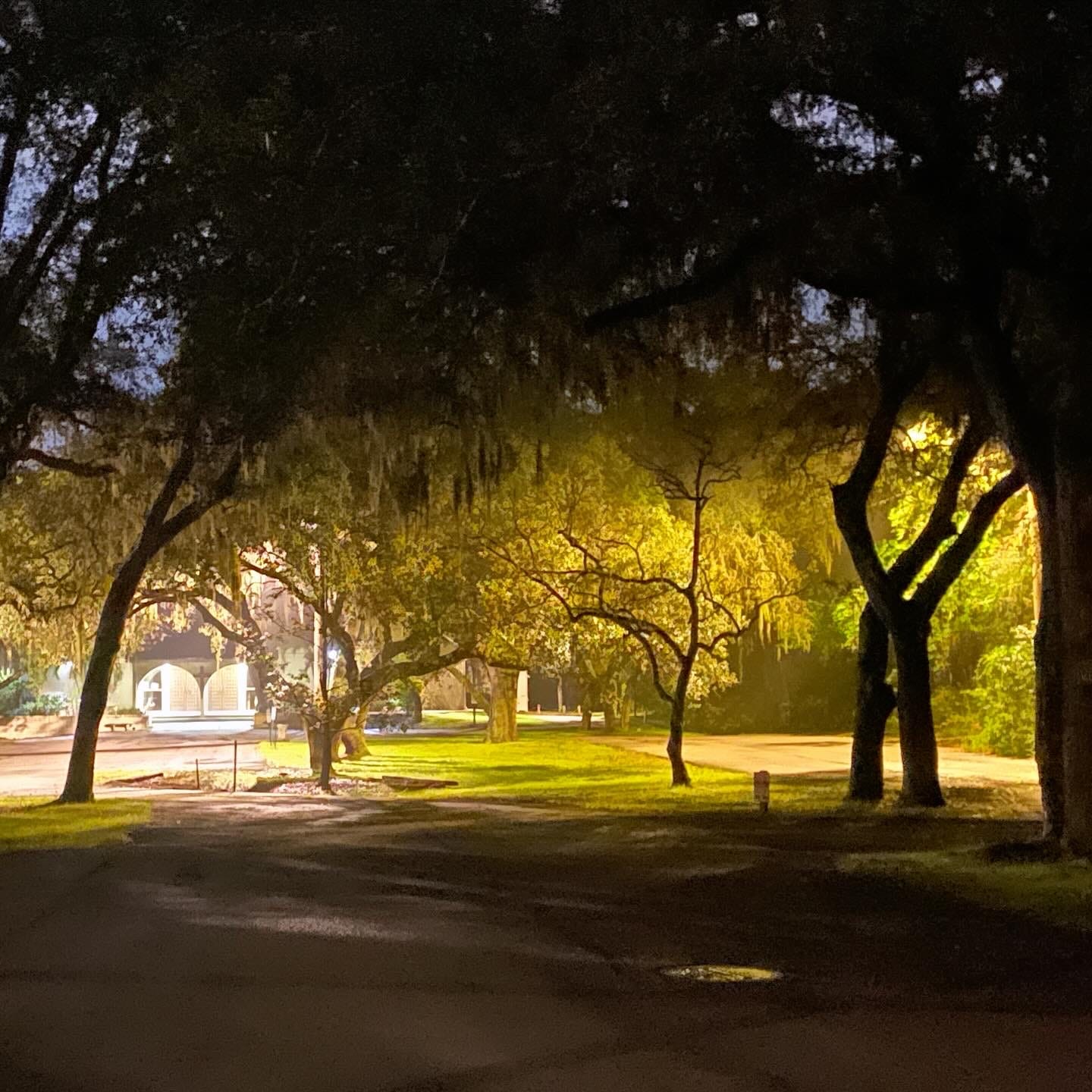My 100 day detox from weed only lasted for 30 days, back in October. Here’s what I experienced.
When it was over I was both relieved and disappointed. I missed it, but felt guilty for giving in. My coach encouraged me to celebrate the win, pointing out that maybe I needed to intend to abstain for 100 days in order to make it to 30.
A month in abstention after years of daily use isn’t anything to sniff at.
Holiday lights in Baldwin Hills
While I was off of weed, a few things happened. I slept lighter and had more vivid dreams and wakeful recollections of them. In fact they were pretty fucking strange, all of them, every night. I dreamed about people from my past, childhood friends, and school settings. I would wake up throughout the night and feel I had less restful sleep, though not necessarily “tired.”
I was less irritable, less lethargic, less hopeless, and less fearful. I had fewer cravings, more self-discipline, and a more upbeat attitude about tackling my to-do list.
I became a morning person, rising without protest often just before my alarm.
I wrote more often and was popping with ideas, mainly spurred by books I was blazing through. TV seemed less interesting and the addictive quality of screens was more apparent to me.
I also felt incredibly bored at times—that sense of longing, of missing something, of not having any fun. I would blow through my duties at work followed by my personal duties—writing, paying bills, cooking—and still feel bored after all was done and not especially satisfied with my accomplishments.
I was frustrated by my boredom, annoyed to feel as if I could only enjoy myself with a drink or a joint. Why couldn’t I enjoy the same things I used to, without the high?
I lost my sex drive almost completely. Didn’t have much desire. I didn’t even feel like masturbating.
Neon psychic shop in Hollywood
I also stopped playing with art and felt less inspired during my walks. I took fewer pictures of things and generally found myself less frequently experiencing awe.
In sum, a month of no THC helped me be more productive, less anxious, more disciplined, and more attuned to my subconscious. I was clear-headed for once, while losing some deeper inspirations and the satisfaction I feel from just “being” (while stoned).
Between the missing art, sex, and visceral joy, I felt like I didn’t have much fun during that month. Though I’m not a big drinker I did find myself drinking more to fill the gap, which felt equally unhealthy and didn’t even provide the same high.
Another thing I noted around the time I “fell off the wagon” is that I relished in the naughtiness of it—of ending the pause and opting for pleasure instead of abstinence—it was satisfying to break the rules. What does that say about me?
It’s a little sad to think that I can only have fun with the addition of marijuana, but the basic truth is that substances heighten our experiences, and that high is hard to replace without them.
My time off of THC surfaced broader questions about our reliance on chemicals, as a basic human experience.
Since the beginning of recorded history, humans and civilizations have experimented with substances to expand their consciousness, help them unwind, to manage stressors. Ever heard of a betel nut? It’s a stimulant seed that’s chewed in many parts of Asia for its effects similar to nicotine. Coca leaves—the unprocessed source of cocaine—are a stimulant that has helped people do rigorous physical labor at high altitudes in South America for over 8,000 years. Hallucinogens of one form or another are used ritually in many cultures to “facilitate social affiliation, enculturation, and belief transmission.”
A spooky fall scene in Tampa
This NOVA episode from the great creators at PBS delves into the cannabinoid system of the human body, which explains why cannabis has both positive and negative effects on different people. Dr. Andrew Huberman’s podcast and YouTube channel both include fascinating discussions about the effects of various stimulants and substances on the human brain and body, in case you are curious to dive deeper.
Without any external substances, I sometimes feel that anyone operating in modern society would have to devote lots of time to meditation and reflection (shadow work) in order to not become overwhelmed. Or put another way, they’d have to develop much stronger mental faculties to contend with the traumas, fears, discomforts, and crises we now face.
I have great respect for anyone struggling with substance abuse and/or committing to a life of sobriety—every one should have this choice and a supportive community. I feel lucky that alcoholism doesn’t run in my family, and that of all the things I could feel dependent on, it’s just the flower from a plant that grows in the dirt.
Nevertheless, last week I decided to try detoxing again. This time there’s no end date, just a desire to reacquaint myself with my kick-ass side.
The experiment feels worthwhile—in order to expand my thinking on external aids, and to better understand why we rely on substances in order to feel alive and enjoy our lives. Moderation may be the ultimate answer. Enjoying substances within reasonable limits is perhaps the best method to relish the best of both states of mind: the pleasure, awe, and relaxation of weed along with the motivation, optimism, and possibilities in sobriety.






